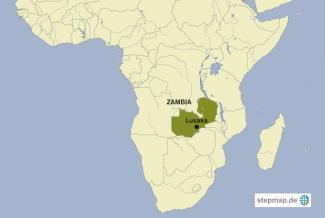Services
Consumers appreciate new taxi apps in Zambia

There are new, technology-based smartphone applications, that use the customer’s phone to detect their specific location using the global positioning system (GPS). The apps, revolutionising the transport sector globally, instantly connect the users to the nearest available driver. Inspired by brands like Uber and Taxify, more ride hailing apps are entering the transport business in Africa. These first became popular in South Africa, Kenya and Nigeria.
Now, commuters in Lusaka are excited after the entry of two taxi hailing apps, Ulendo and Yango taxi, into the transport sector. “I am a first-time user of Ulendo and I enjoyed the services I received in the past two days while in Lusaka. My movements were made easy and faster”, said Caroline Mwamba.
The new service providers promise delivery of fast, reliable and affordable rides to costumers in Lusaka. With a regular taxi, a trip from Lusaka’s central business district to Kenneth Kaunda’s International airport costs approximately K500 (€33) but with Ulendo, the offer rate is from as low as K300 (€20).
Yango, a Russian ride-hailing, delivery and e-grocery service app operating in Europe, Africa and the Middle East has recently entered the Zambian market too. Yango is a part of Yandex, a large Russian IT company. Yango, currently a cash-only service, allows a user to order a car by inputting their destination address and the app algorithms automatically calculate the price of the trip beforehand. Rides in Lusaka ordered with Yango start at K40 ($2) with a distance of about 3 kilometres.
However, the market entry of ride-hailing apps has been met with mixed feelings by traditional taxi operators. The lower price rates offered by Ulendo and Yango are very tempting for most clients. “As you can see, we are just languishing here. The new taxi app is affecting our business. We urge the government to regulate this industry to enable a conducive business environment for all operators,” says Timothy Tembo, a local traditional taxi driver who operates at Kulima tower bus station.
These traditional taxi drivers attribute their higher fares to operational fees such as tax levies and registration fees they must pay unlike the mobile application operators. They also accuse the apps of using aggressive below-cost pricing and using drivers who operate without taxi permits from the local authorities.
Despite these challenges, experts are feeling that tech-based apps are positively disrupting transportation and will lead to better services. Jimmy Njobvu, an IT expert, is optimistic and says: “I see growth of the IT sector on the local market. Zambia joins other African countries like Ivory Coast, Ghana, Cameroon and Senegal where apps like Yango have launched their service.”
Derrick Silimina is a freelance journalist based in Lusaka.
derricksilimina@gmail.com











